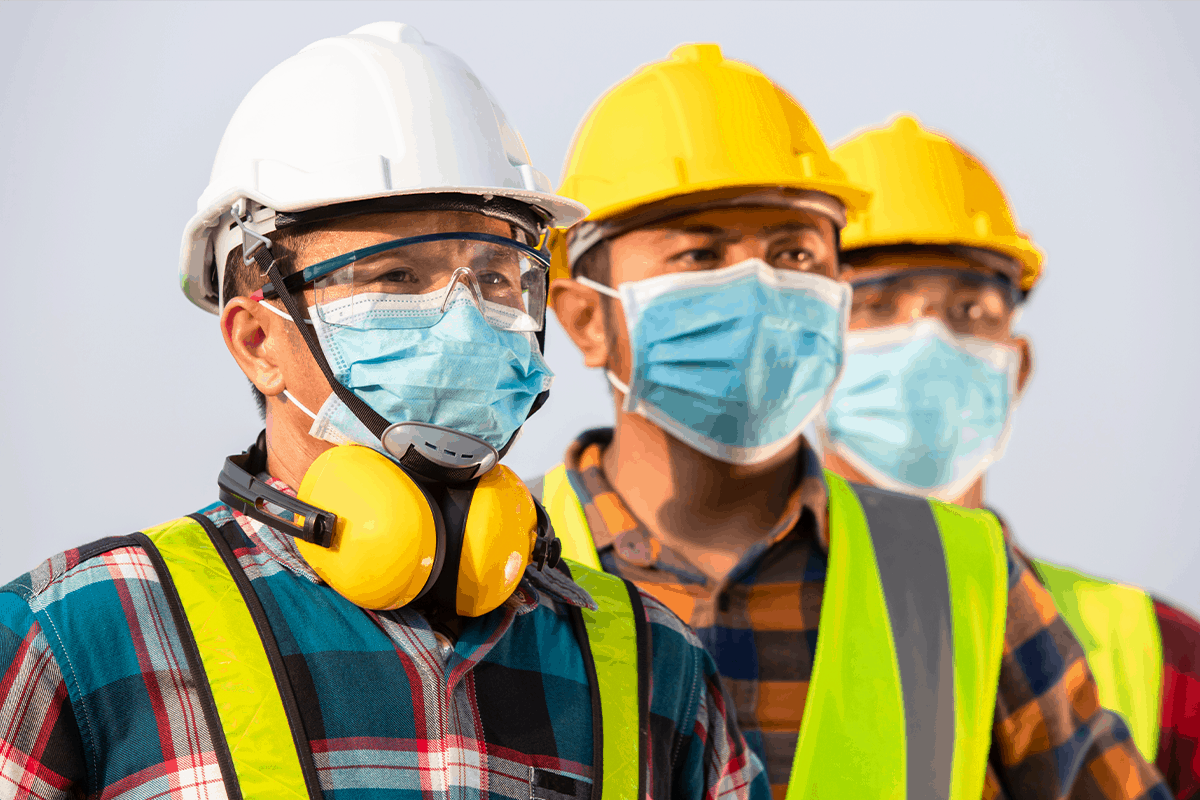
- Can a covid-19 infection become an osha recordable event?
- What states have extended covid-19 coverage under workers’ compensation?
- How do states evaluate covid-related workers’ compensation claims?
- Will covid cases slow down the workers’ compensation system?
Workers’ comp is enough of a burden as it is, but with the addition of COVID-19 there are more complications than ever. In this article we’ll look at common workers’ comp and COVID FAQs to help employers stay prepared for what’s next.
Can a COVID-19 infection become an OSHA recordable event?
The answer to this question is a murky “maybe.”
Unfortunately, there is no clear-cut yes or no answer to this question. That is in large part because each state administers its workers’ compensation rules differently. We know that most state workers’ compensation laws cover “occupational diseases” that arise out of the course of employment. Occupational diseases are an illness or injury that happens in the workplace that either causes a new health condition or worsen a preexisting one.
For example, the American Academy of Family Physicians (AAFP) lists a few of the occupational diseases commonly recognized by most state workers’ compensation policies:
- Asthma due to industrial fumes
- Chronic obstructive pulmonary disease related to smoke, gasses, or dust in an industrial setting
- Contact dermatitis due to exposure to biologic agents on the job
- Even repetitive motion musculoskeletal disorders related to operating machinery
All of these conditions can be recordable events under OSHA. However, OSHA exempts influenza and the common cold as being recordable. That’s because these illnesses exist in the at-large community and cannot be correlated directly to the workplace.
OSHA has said that COVID-19 can qualify under workers’ compensation benefits in cases where the employee was infected as a result of conducting work-related duties. This precedent was set in the healthcare industry and correctional institutions, according to Brink, but “…other employers will be expected to implement good hygiene practices and record COVID-19 cases only if there is objective evidence that such cases may be work-related and the evidence was reasonably available to the employer.”
COVID-19 is a virus outside our experience, meaning, it simply didn’t exist before 2019. It’s a unique event where jobs that originally were not considered dangerous suddenly became so due to risks of contracting the virus. We are still learning how the coronavirus fits within existing workers’ compensation frameworks, so check with your state Bureau of Workers’ Compensation to determine the best approach.

What States Have Extended COVID-19 Coverage Under Workers’ Compensation?
According to the National Conference of State Legislatures (NCSL), currently, 17 states and Puerto Rico have extended workers’ compensation coverage for COVID-19 as a work-related illness. This is a moving target that will likely have changed by the time you read this article. The typical approach has been to amend state policies so that a COVID infection is presumed to be work-related and covered under worker’s comp.
Interestingly, this assumption places the burden of proof on the employer and their insurance payer to prove the infection was not work-related. This will surely raise costs for companies and it comes at a bad time when many employers continue to face challenges related to the pandemic lockdown.
The states and territories that currently offer some sort of COVID-19 coverage under their workers’ compensation statute include:
- Alaska
- Arkansas
- California
- Connecticut
- Florida
- Illinois
- Kentucky
- Minnesota
- New Hampshire
- New Mexico
- North Carolina
- North Dakota
- Ohio
- Puerto Rico
- Utah
- Vermont
- Washington
- Wisconsin
- Wyoming
The states that sponsored an initiative and then failed to pass it includes: Colorado, Kansas, Louisiana, North Carolina, South Carolina, Tennessee, and Virginia. The states that have initiatives pending as of this writing include: Massachusetts, Michigan, Ohio, New Jersey, New York, Rhode Island, Texas
Currently, nine states have enacted broad rules creating coverage for various kinds of workers. Some states, like Minnesota, Utah, and Wisconsin, limit coverage to just healthcare workers and first responders. California and Wyoming cover all workers while New Jersey and Vermont cover all “essential” workers, a state designation for employees that provide necessary services during the pandemic crisis. Kentucky covered essential workers including those in grocery stores. It should be noted that states may have pushed several laws through with varying language and some, like California, have a history of wins and losses on this front.

How Do States Evaluate COVID-Related Workers’ Compensation Claims?
The answer to this depends on the state you work in. Again, each state governs its programs as it sees fit. Some states evaluate claims within the context of the occupation or industry. Most states have a unique workers’ compensation judicial system where judges have the final say on benefits and awards.
Let’s take one state as an example. Washington state announced in 2021 that first responders and healthcare workers can receive wage replacement and have all healthcare expenses covered under workers’ compensation when they are quarantined with COVID-19.
However, Washington is different from other states in that it mandates one publicly-managed workers’ compensation insurance program. The state has ultimate control over this system and looks closely at each COVID-19 claim with a discerning eye. They use three criteria for determining their decision as to whether the claim is covered:
- Was there a greater likelihood of contracting COVID due to the worker’s occupation?
- Was the job the primary reason the worker would have been exposed to the virus?
- Can the employee identify a specific on-the-job event that exposed them to the coronavirus?

Will COVID Cases Slow Down the Workers’ Compensation System?
Businesses should prepare for a possible slowdown in how long it takes for their state system to process claims. Cases may remain open longer since we are basically establishing rules to govern this new illness as we go along. During the COVID crisis, we saw workers’ compensation board offices shutting down and, while some hearings were conducted virtually, many were simply postponed. Plus, the resources necessary to conduct field investigations and medical exams are somewhat limited.
The Insurance Journal reported some preliminary findings on COVID’s impact on the healthcare and workers’ compensation infrastructure and found:
- Hospitalization has been the key cost driver for COVID claims
- While 80% of COVID claimants received limited care, 20% ended in the hospital
- The typical COVID stay lasts about a week and costs around $40,000 on average
- If the patient was admitted via the ER, the stay was longer, at 12 days with a cost of $62,000 on average
Interestingly, the panel found that “the pandemic has accelerated its use of telemedicine,” related to workers’ compensation claims, a trend the insurance industry believes is a “lasting change.”



